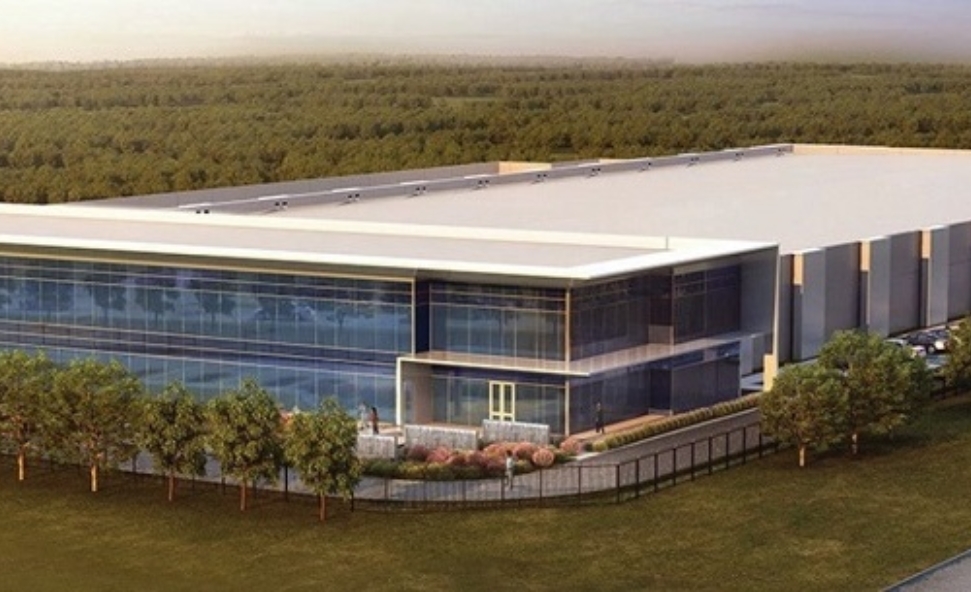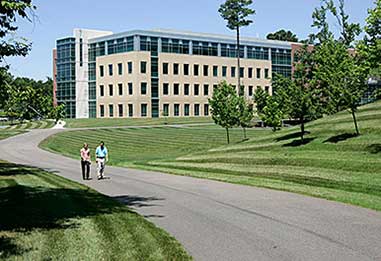
News
Blog | 8 min read
October 10, 2019

Richmond’s emerging financial technology market is challenging traditional districts, with its advanced telecommunications infrastructure, educated workers with high-tech skills, streamlined regulations, and low taxes.
Financial technology (fintech) is one of the hottest technology sectors to emerge over the last decade. Once limited to traditional financial centers, fintech is now a rapidly expanding market with innovative startups that can set up operations just about anywhere. Smaller cities can easily compete with larger, well-established fintech clusters in other cities if they have an abundance of IT talent, modern infrastructure, and low business costs.
“Today’s growing fintech markets are smaller cities that tend to share a vibrant professional services economy, advanced telecommunications infrastructure, a growing pool of college-educated and tech-focused millennials, limited regulatory landscapes, and low taxes,” says Tedd Carrison, a financial analyst with CBRE. “These markets often provide business amenities and opportunities that are similar to the nation’s largest metropolitan areas, while offering lower costs.”
Richmond has the perfect blend of site location factors that fintech companies seek. Workforce skills are typically a top consideration. The entire state of Virginia is tech-savvy. For example, northern Virginia is the largest and most active data center market in the U.S. and has the second-highest concentration of high-tech workers in the nation. Richmond was also recently ranked as the “Third-Best City (Outside Silicon Valley) for Your Next StartUp” by BroadBandNow based on Internet speed, startup culture, and cost of living.
Richmond also offers advanced telecommunications infrastructure, a plentiful labor pool of college-educated workers with high-tech skills, streamlined regulations, and low taxes — other key site selection factors for fintech. In fact, data center tax rate reductions by as much as 88 percent in Henrico and Chesterfield counties have greatly enhanced the attractiveness of the Greater Richmond area for data operations.
“The city is already a significant banking and financial services hub, led by the Fifth District Federal Reserve and a broad spectrum of companies engaged in banking, brokerage, investment banking, specialty finance, and insurance,” says John Boyd, principal with The Boyd Company, a Princeton, New Jersey-based location consulting firm that frequently works with fintech companies.
The sector is led by Capital One, followed by Atlantic Union Bank, Genworth Financial, Anthem and Markel Insurance, Davenport and Company brokerage, and investment bankers Matrix Capital.
“Richmond has a long history of being home to financial services companies and most are using dynamic data to push profits to the next level,” says Lara Fritts, president and CEO of the Greater Richmond Partnership.
“Fintech is an evolution of two existing business clusters, and Richmond provides an important intersection for data centers, cybersecurity, and other digital services.”
Now headquartered in McLean, Va., Capital One got started in Richmond in the early 1990s. Today, Capital One is one of the nation’s largest credit card issuers. It still maintains a huge credit card processing and client services presence in Richmond, where it employs some 13,000 workers — the Richmond region’s largest employer. Its $150 million data center is one of three primary facilities in the U.S. where the company stores and manages customer data. Capital One also recently acquired Notch, a technology company founded in Richmond in 2014 that specializes in data engineering and machine learning.
Paymerang, a Richmond-based fintech firm, provides a digital platform that allows its clients to pay all their vendors electronically. Over the last year the company has nearly doubled its workforce by adding new positions in sales and marketing, information technology, and customer service. Now with a staff of 80 employees, the company expects to employ a total of 100 workers by the end of 2019.
“Our goal is to make Paymerang a big player in the payments space, specifically in business payments,” says Paymerang CEO Nasser Chanda. “The industry we serve is still in the early stages, so we have a tremendous opportunity to capture and grow our share of the space.”
Another fast-growing Richmond-based fintech is WealthForge, which provides a processing technology platform for alternative investments. In 2018, the company processed over $500 million in alternative investment transactions and surpassed $1 billion in lifetime transactions. It has also been recognized as one of the fastest-growing private companies in the country by placing No. 932 on the Inc. 5000 and No. 189 on the Deloitte Technology Fast 500, thanks to a remarkable 531 percent revenue growth between 2015 and 2017.
Other fintech companies with established operations in the Richmond area include Bank of America, Allianz Partners, West Creek Financial, BlueSwipe, Coin Savage, DineGigs, and Fenris Digital. Two big reasons that these and other fintech companies come to Richmond are the startup support and skilled talent.
For example, 1717 Innovation Center — a six-story, 42,000-square-foot building — recently opened inside an extensively renovated former tobacco warehouse. The Capital One-backed Innovation Center will serve as an incubator for as many as 50 startup businesses at a time, providing affordable business space, along with mentoring and leadership programs and community events and conferences. Capital One has invested in the incubator as part of its Future Edge initiative, a five-year, $150 million grant program aimed at supporting entrepreneurs, workforce training, and financial education in the communities where the company operates.
“Capital One was originally a Richmond-based startup 25 years ago and we are proud to be the area’s largest employer today. Richmond is a great place to work for many reasons including the exceptional universities, incredible talent and supportive government, and nonprofit partners dedicated to continuous innovation. Our employees enjoy living in Richmond for its unique quality of life featuring endless opportunities for outdoor enthusiasts, vibrant fine arts scene, critically-acclaimed restaurants, and historic attractions dating back 400 years,” says Buck Stinson, senior vice president of U.S. Card Partnerships for Capital One.
Fintech companies that are looking for space are always impressed by the fact that Virginia turns out about 2,700 college graduates in finance every year — the factor that is “most in demand by our corporate site-seeking clients, both in and out of the banking and fintech sectors,” says Boyd. Virginia Commonwealth University in Richmond offers a degree in fintech and operates its Capital Markets Center, a 1,700-square-foot facility equipped with industry-standard technologies. Students, faculty, and business community partners use the center to monitor real-time financial market data, carry out research, and attend presentations.
Boyd expects Amazon’s HQ2 going into northern Virginia will have significant positive economic impacts on Richmond. “Amazon’s $2.5 billion second headquarters planned for Arlington’s Crystal City will likely inspire a bevy of tech suppliers, vendors, and spinoff companies to include options within Virginia as part of their expansion plans over the next several years,” says Boyd, who expects the Richmond area to enjoy the same Amazon-generated tech growth experienced by Seattle (Amazon’s first headquarters), which included major expansions of Facebook, Apple, Expedia, and fintechs such as Avalara, Remitly, and Gravity Payments.
Another downstream benefit of northern Virginia’s Amazon presence is the fact that Virginia has committed to dramatically increasing its investment in high-tech education programs across the entire state — a main reason Amazon chose northern Virginia.
“Over $1.1 billion in state money will be flowing through a new pipeline to high-tech academic programs at universities and colleges throughout Virginia,” says Boyd.
These include institutions in the Richmond area such as Virginia Commonwealth University, Virginia State University, and Richard Bland College, based outside of nearby Petersburg.
“The Greater Richmond area provides an established and growing pipeline of technology talent for Bank of America,” says Victor Branch, senior vice president and Richmond market president at Bank of America. “Recently CEO Brian Moynihan stated that Bank of America is a technology company wrapped around a bank, and as we continue to grow and adapt our services to a new economy, we look to markets like Richmond to fuel that growth. We have had a long history here in Richmond and are excited about our continued partnership together.”
Richmond is also high on the radar for major banks that are now investing heavily in their own fintech operations. They are no longer ignoring the competition from upstart fintechs and are now pushing back with their biggest weapon: cash. “Spending levels in fintech this year by major banks are stunning — $11.4 billion by JP Morgan Chase, $10 billion by Bank of America, $9 billion by Wells Fargo, and $8 billion by Citigroup,” says Boyd. “Richmond’s positive labor climate and real estate bargains when compared to East Coast banking centers like New York, Boston, Philadelphia, and Wilmington have put Richmond in good stead from a fintech attraction standpoint.”